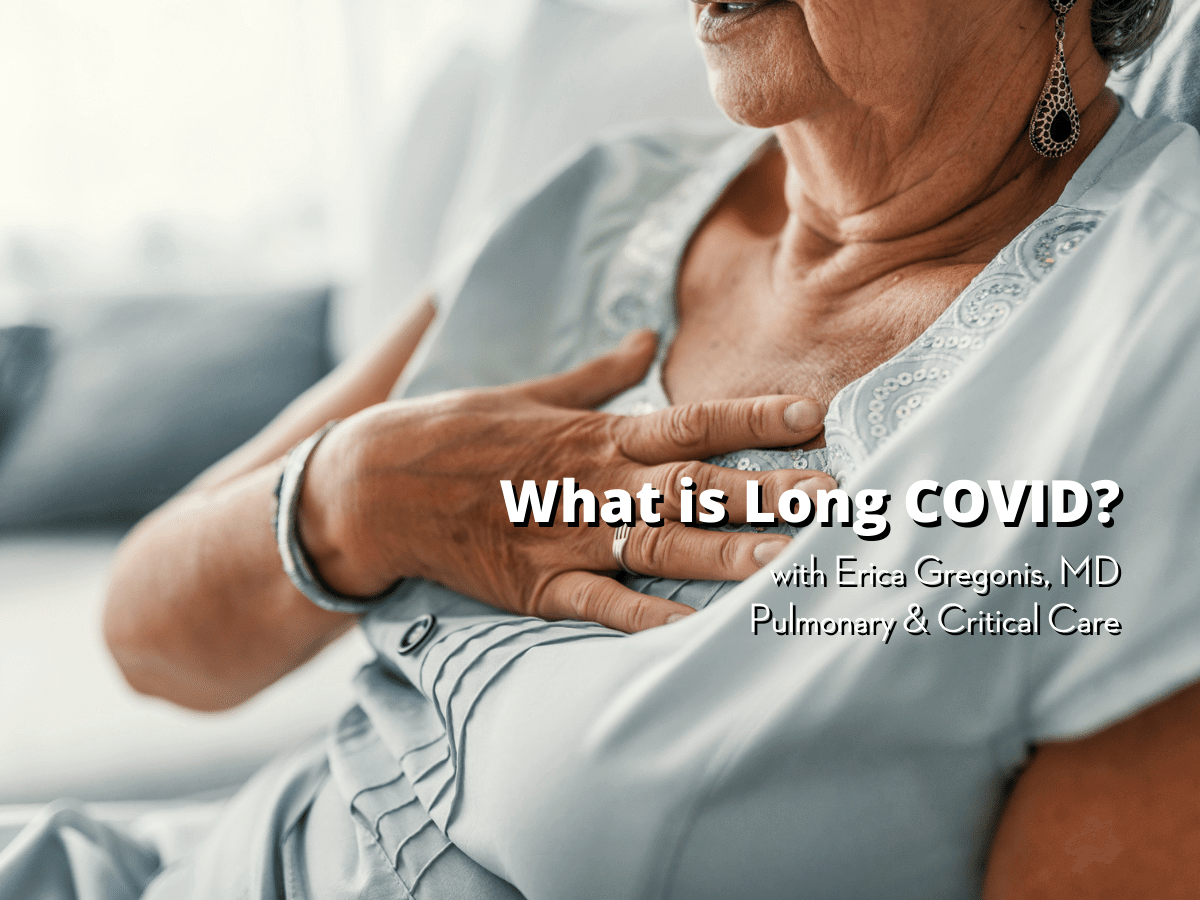What Are the Long-Term Effects of COVID-19?

Most people who contract COVID-19 recover within weeks. However, the illness can cause long-term issues in various organs and systems in the body. It’s important to understand what those effects are and to be reminded that the best way to protect yourself from COVID-19 and subsequent health problems is to get vaccinated.
Long-Term COVID-19 Effects on the Heart
Heart imagining done on patients months after they’ve recovered from COVID-19 shows that some have lasting damage to the heart muscle. This includes patients who only had mild cases of COVID-19. This damage can increase the risk of heart failure in the future.
Don’t take a chance with your health.
Getting the COVID-19 vaccine is the best way to prevent COVID-19 infection and end the pandemic. The vaccine cannot give you COVID-19, but it can help protect you from serious illness. Learn more about the COVID-19 vaccine and make a vaccination appointment at a location near you.
Long-Term COVID-19 Effects on the Circulatory System
COVID-19 can cause the formation of blood clots. Larger clots can result in heart attacks and strokes. However, researchers believe a bigger risk is damage to the heart muscle if small clots block capillaries (tiny blood vessels) in the heart.
Blood clots caused by COVID-19 can also affect other organs and areas of the body like the kidneys, lungs, liver, and legs. In addition, the illness can weaken blood vessels, with the resulting leakage causing long-term problems in the kidneys and liver.
Long-Term COVID-19 Effects on the Lungs
COVID-19 is associated with a particular type of pneumonia. Patients who develop it can suffer damage to tiny sacs in the lungs called alveoli. Scarring of those sacs can cause long-lasting breathing difficulties.
Long-Term COVID-19 Effects on the Brain
The risk of seizures, strokes, and Guillain-Barre syndrome (which causes temporary paralysis) is higher in people who have COVID-19 — even young people. The risk of developing Alzheimer’s disease and Parkinson’s disease is higher, as well.
Post COVID Care – When and Where You Need It.
Baptist Health has developed a program for patients that had COVID-19 and are still experiencing symptoms or do not feel they have fully recovered. If you are experiencing any issues after having COVID-19 such as persistent shortness of breath, exercise intolerance, or ongoing symptoms, you can get care now from Baptist Health’s long COVID program via a virtual visit with a provider.
Long-Term COVID-19 Effects on Mood and Fatigue Disorders
Patients who have a severe case of COVID-19 and must be hospitalized and possibly put on a ventilator are more likely to develop anxiety, depression, and post-traumatic stress disorder (PTSD). They may also develop chronic fatigue syndrome, which is a condition that causes extreme fatigue when a person performs physical or mental activities and that doesn’t resolve with rest.
Researchers base their expectations of these long-term effects on observations of patients who contracted similar viruses like the one that causes severe acute respiratory syndrome (SARS). People who recovered from SARS were more likely to develop these types of mood and fatigue disorders.
Reduce Your Risk of Long-Term COVID-19 Effects by Getting Vaccinated
Studies on COVID-19 and its long-term effects continue. But one thing is clear: You can reduce your risk by getting vaccinated. If you’ve not yet been vaccinated against COVID-19, schedule your vaccination appointment today.
Next Steps and Useful Resources:
Find a Provider Near You
Get Started Now With Virtual Care
What Are COVID-19 Long-Haulers?
Recovering from COVID-19? Here Are 5 At-Home Exercises That Can Help.



